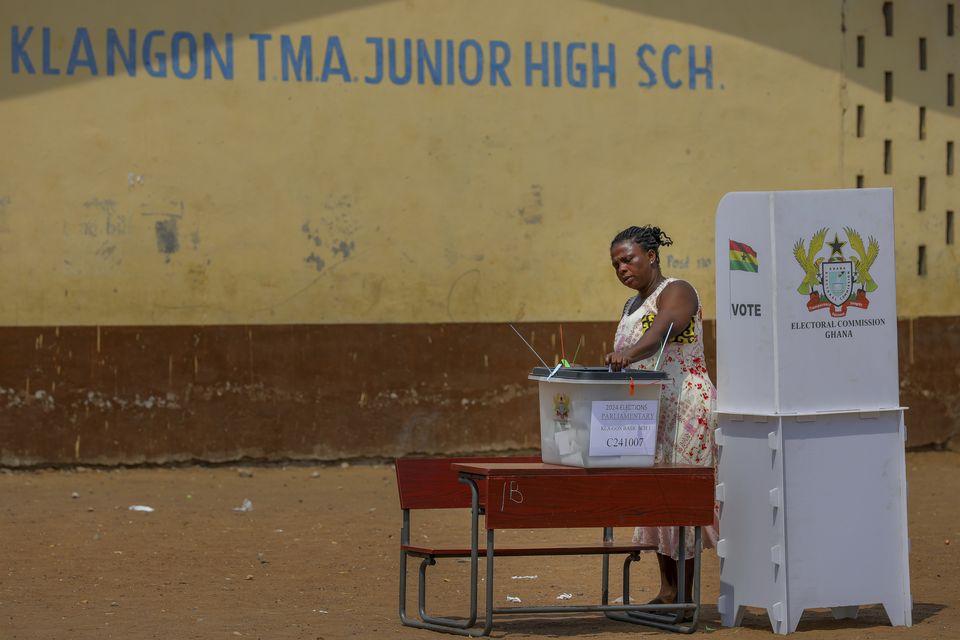Voting closed on Saturday evening in most polling centres throughout Ghana, bringing to an end the presidential and legislative elections poised to be a litmus test for democracy in a region shaken by extremist violence and coups.
The capital, Accra, was almost a ghost town for much of the day. Even vibrant Oxford Street, one of the city’s commercial hubs, saw little activity on the day that Ghanaians went to the polls to elect a new president and 276 legislators.
About 18.7 million people are registered to vote in the West African country hit by one of the worst economic crises in a generation. However, the two main candidates offer little hope for change for the nation.
Early results were expected late on Saturday. The first official results will be released by Tuesday.
A woman casts her ballot at a polling station in Jamestown, Accra (Misper Apawu/AP)
Ghana used to be a poster child for democracy in the region. At a time when coups threatened democracy in West Africa, Ghana has emerged as a beacon of democratic stability with a history of peaceful elections.
It had also been an economic powerhouse, priding itself on its economic development.
But in recent years, it has struggled with a profound economic crisis, including surging inflation and a lack of jobs.
According to an opinion poll released earlier this year by Afrobarometer, a research group, 82% of Ghanaians feel their country is headed in the wrong direction.
Although 12 candidates are running to become Ghana’s next president, Saturday’s election – like previous ones since the return of multiparty politics in 1992 – has emerged as a two-horse race.
Vice president Mahamudu Bawumia is the candidate of the ruling New Patriotic Party, or NPP, which has struggled to resolve the economic crisis.
He faces off against former president John Dramani Mahama, the leader of the main opposition party National Democratic Congress, or NDC. He was voted out in 2016 after failing to deliver on promises for the economy.
Opinion polls point at a potential comeback for Mr Mahama. A local research company, Global InfoAnalytics says he is projected to get 52.2% of the vote, followed by Mr Bawumia, with 41.4%.
